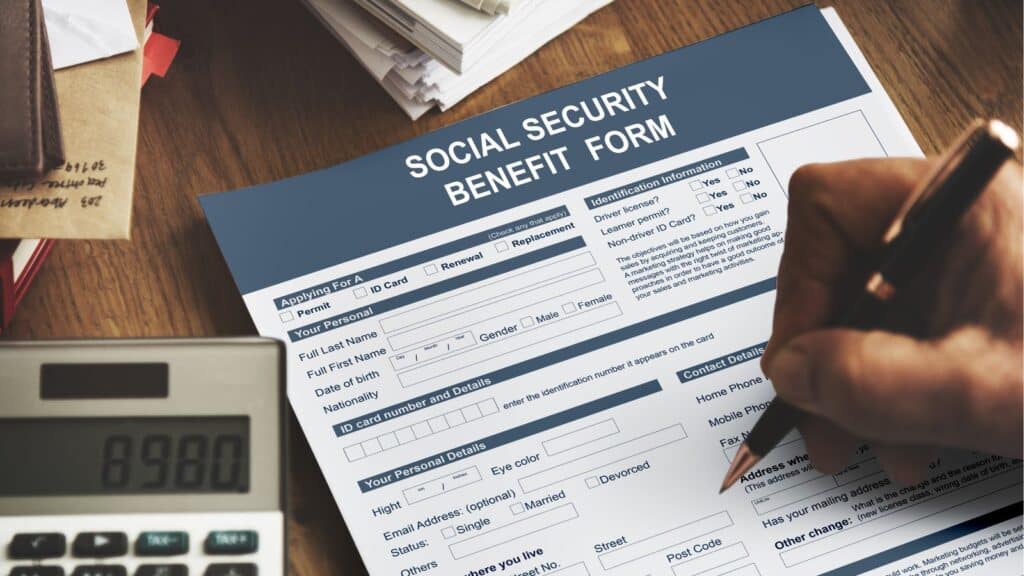Many Baby Boomers spent years building their savings, but certain habits are slowing their progress now. With prices higher, people living longer, and the economy shifting, old routines don’t always make sense anymore. Here are some of the most common habits holding retirees back and ways to adjust.
Carrying Credit Card Balances

High-interest credit card debt is one of the biggest financial drains. Even small balances add up quickly with today’s double-digit interest rates. For Boomers on fixed incomes, this creates a cycle where monthly payments cover interest but barely touch the principal. Paying balances in full or shifting debt to a lower-interest option helps preserve retirement savings.
💸 Take Back Control of Your Finances in 2025 💸
Get Instant Access to our free mini course
5 DAYS TO A BETTER BUDGET
Relying on Old Budget Methods

Paper ledgers and mental tracking worked decades ago, but costs have grown more complex. Subscriptions, automatic renewals, and fluctuating utilities make it harder to keep tabs without digital help. Many Boomers miss opportunities to cut back simply because they can’t see the full picture. Using modern budgeting apps provides real-time tracking and reveals hidden spending leaks.
Holding Too Much Cash

Keeping large sums in savings accounts feels safe, but inflation steadily reduces buying power. A dollar today won’t stretch as far in 10 years. While riskier investments may feel uncomfortable, even conservative options like CDs, Treasury bonds, or balanced mutual funds can provide better growth. Boomers who leave money in low-yield accounts lose out on long-term stability.
Ignoring Healthcare Costs

Medical expenses climb with age, and many underestimate how much they’ll need. Premiums, prescriptions, and deductibles can eat into retirement checks. Without planning, unexpected bills create debt or force lifestyle cutbacks. Building healthcare costs into the budget and using Health Savings Accounts (HSAs) when possible helps cover needs without draining other savings.
Sticking With Expensive Housing

Many Boomers stay in large family homes long after children move out. The upkeep, taxes, and utilities often outweigh the benefits. While downsizing feels like a big step, it can lower monthly costs, free up equity, and simplify daily life. Some find moving to a smaller home or condo reduces stress along with expenses.
Overspending on Adult Children

It’s natural to want to support children, but ongoing financial help can strain retirement funds. Covering rent, bills, or frequent “emergencies” leaves less money for personal needs. Some Boomers continue to give even when it jeopardizes their own stability. Setting clear limits ensures kids build independence while parents protect their future.
Avoiding Technology

Skipping online tools means missing deals and convenience. Digital coupons, automatic bill pay, and price comparison sites save time and money. Without them, Boomers often pay higher prices or miss discounts. Learning basic apps or asking family for help can open the door to easier money management and new ways to stretch the budget.
Delaying Social Security Strategy

Many start benefits as soon as they’re eligible without thinking about long-term impact. Collecting too early reduces monthly payments for life, while waiting increases them. The difference adds up to tens of thousands of dollars. Boomers who don’t review options or speak with an advisor may leave money on the table they’ll later need.
Keeping Cars Too Long

Older cars seem thrifty, but repairs, insurance, and fuel costs rise over time. At a certain point, pouring money into a vehicle becomes more expensive than upgrading. Newer models often come with better mileage and lower maintenance needs. Replacing an aging car at the right time can actually save money long-term.
Dining Out Frequently

Restaurant meals are convenient, but costs add up quickly. Even casual dining once or twice a week strains a budget when multiplied over a year. Many don’t realize how much of their income goes to eating out. Cooking at home, meal prepping, or limiting restaurant visits to special occasions can cut thousands in annual expenses.
Skipping Estate Planning

Without wills, trusts, or power-of-attorney documents, families often face costly legal battles. Boomers who delay estate planning risk leaving behind confusion and expenses. Having a clear plan not only protects assets but also provides peace of mind. It’s a one-time effort that can save families time, money, and stress later.
Not Taking Advantage of Discounts

Senior discounts on groceries, travel, dining, and entertainment are widely available, yet often overlooked. Many Boomers either forget to ask or assume the savings aren’t worth it. Over time, these small discounts can add up to hundreds of dollars. Consistently taking advantage of them is a simple way to stretch income.
Ignoring Inflation’s Impact

Inflation reduces the value of every dollar, yet some Boomers continue to budget as though prices haven’t changed. Groceries, utilities, and housing costs have risen steadily, leaving less disposable income. Without adjusting investments, income sources, or spending habits, retirees lose ground each year. Factoring inflation into financial planning helps maintain stability over time.
Building Better Habits

Money routines that worked in the past don’t always fit today’s economy. By reducing debt, embracing technology, downsizing when needed, and planning carefully for healthcare and inflation, Boomers can protect their savings. Updating old habits is key to staying ahead financially while enjoying retirement with less stress.
12 Budgeting Hacks Retired People Swear By

Planning your retirement budget is about more than saving money—it’s about making your dollar stretch while living comfortably. With fixed incomes becoming the norm for many retirees, knowing how to manage finances effectively can make your golden years stress-free. From small daily habits to larger financial strategies, here are 12 budgeting hacks retirees trust to manage their money wisely without sacrificing quality of life. 12 Budgeting Hacks Retired People Swear By



